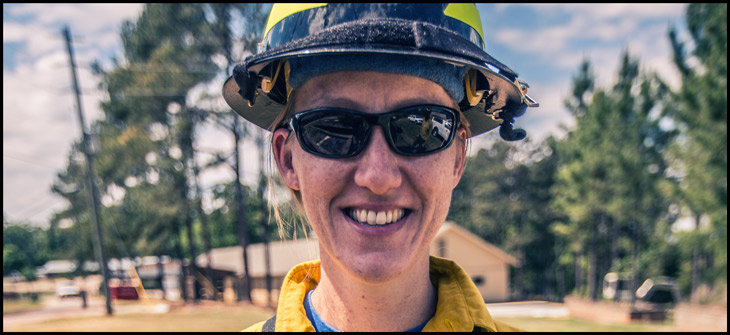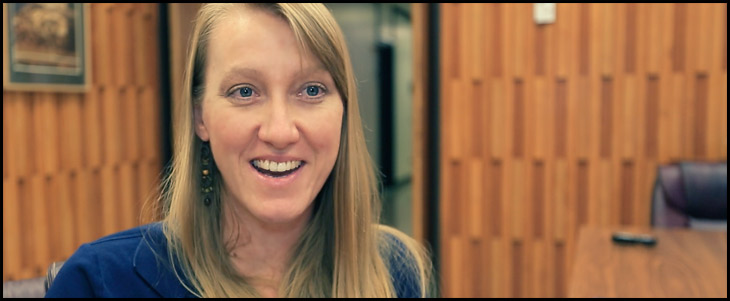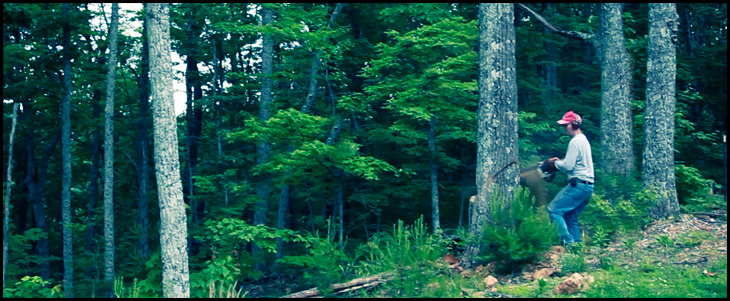If you were a tree, what would you be?
One that is resistant to chainsaws!
Could you summarize what you do with fire?
I study fire and plant interactions with fire to plug this information into computer models. These models help us understand what we know and don’t know about fire and ecosystem dynamics.
What does a typical field day look like?
Going on a prescribed burn to either support local burning operations, or to collect data for fire science research. Either way, we typically work in a fire-maintained ecosystem, where burns are done regularly (1-5 year between fires) or fires are being re-introduced into a long-unburned forest for restoration purposes.
What inspired you to start doing this?
Fire is a way to connect the people to the land. I was inspired by how much fire science could be relevant for long-term forest management.

Why do you think it’s important?
Fire is as important to understand forests globally as any other process, such as water or nutrient cycling. Fires (and others, such as insects, diseases, and changing weather patterns) interact with our forests; understanding their dynamics is imperative if we want to manage them well and adapt to change.
What do most people not know about fire and fire science?
Fire is a process, as important as sun, rain, and soil, in many ecosystems globally. Without regular fire (every few years) the system would change to another ecosystem type and often biodiversity for both plants and animals plummets when fire is removed.
What is the most rewarding thing about doing this work?
I can see our research being applied to forest and landscape management. We are helping to contribute to conservation of some of the world’s most threatened ecosystems.
What if others want to help our forests – how can they help?
Visit local nature centers, preserves, and local and national parks. This helps to both connect to nature and learn more about our local ecosystems. Often times many nearby parks are burned regularly, so we as a community can see the benefits!

Finally, do you have any advice for a young student wanting to get into this field?
Fire ecology is still a young field of research, and more and more jobs are available in this field. We need more fire ecologists and fire scientists!

































































































